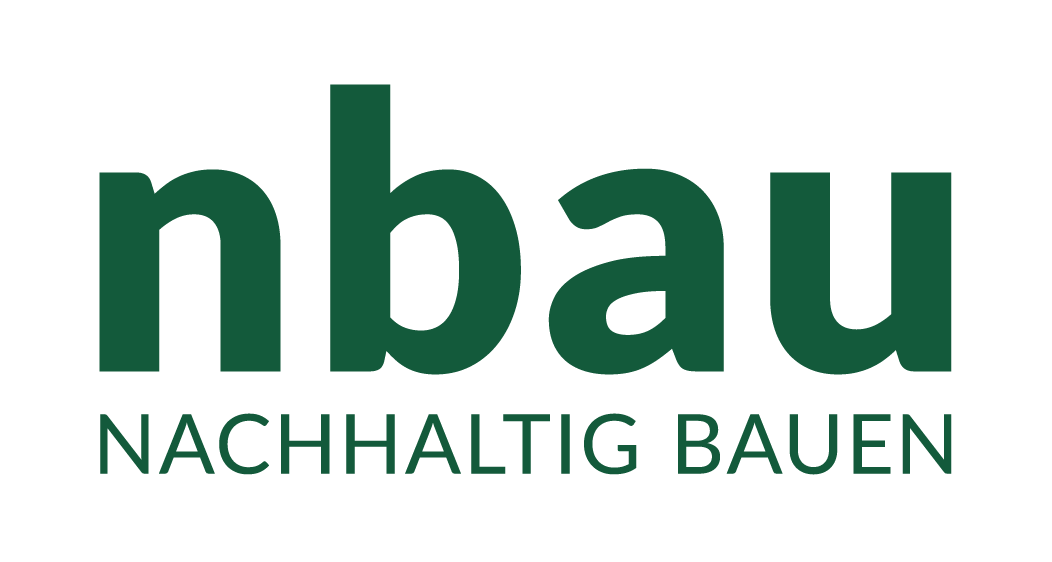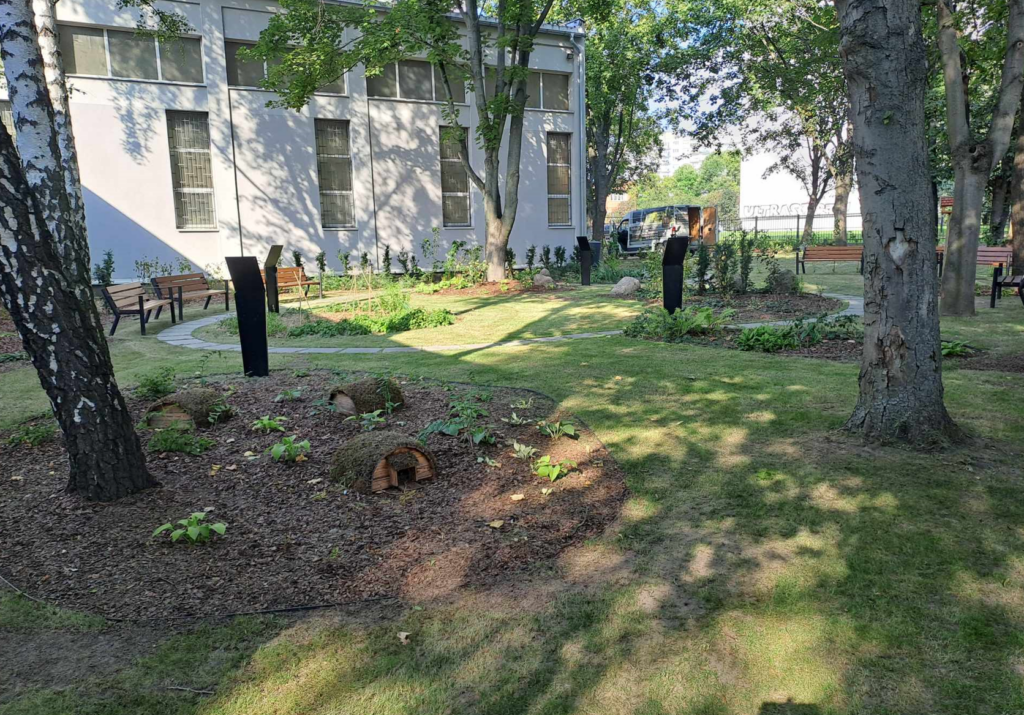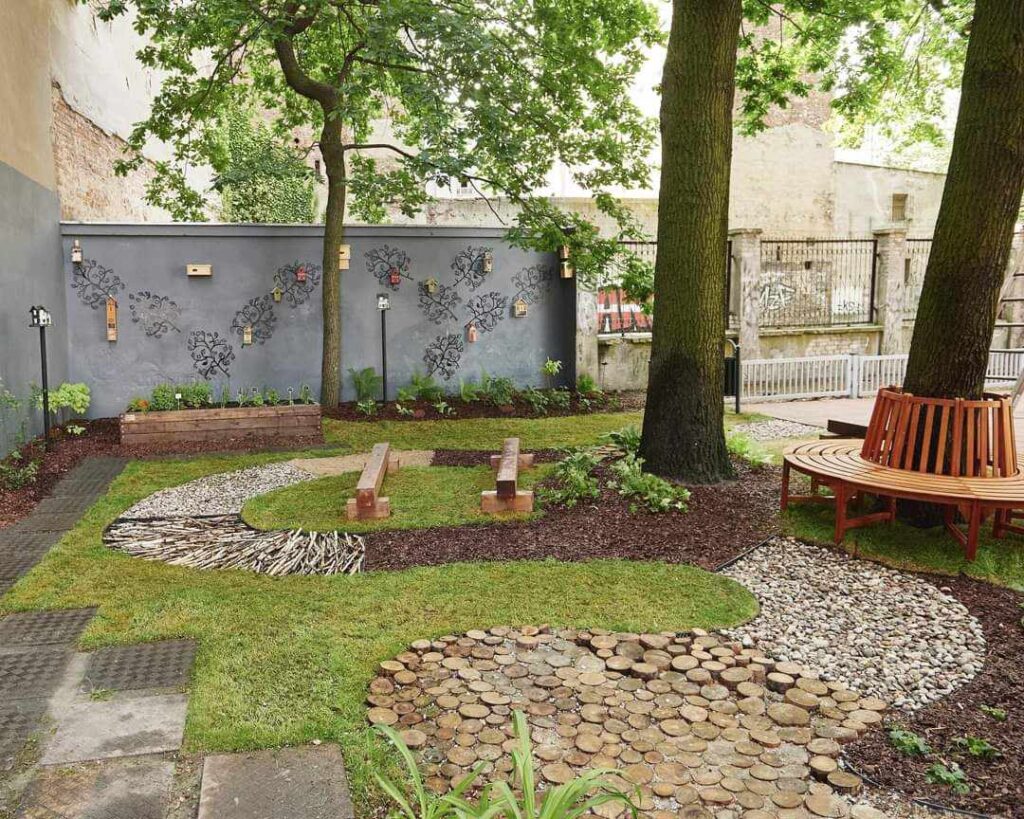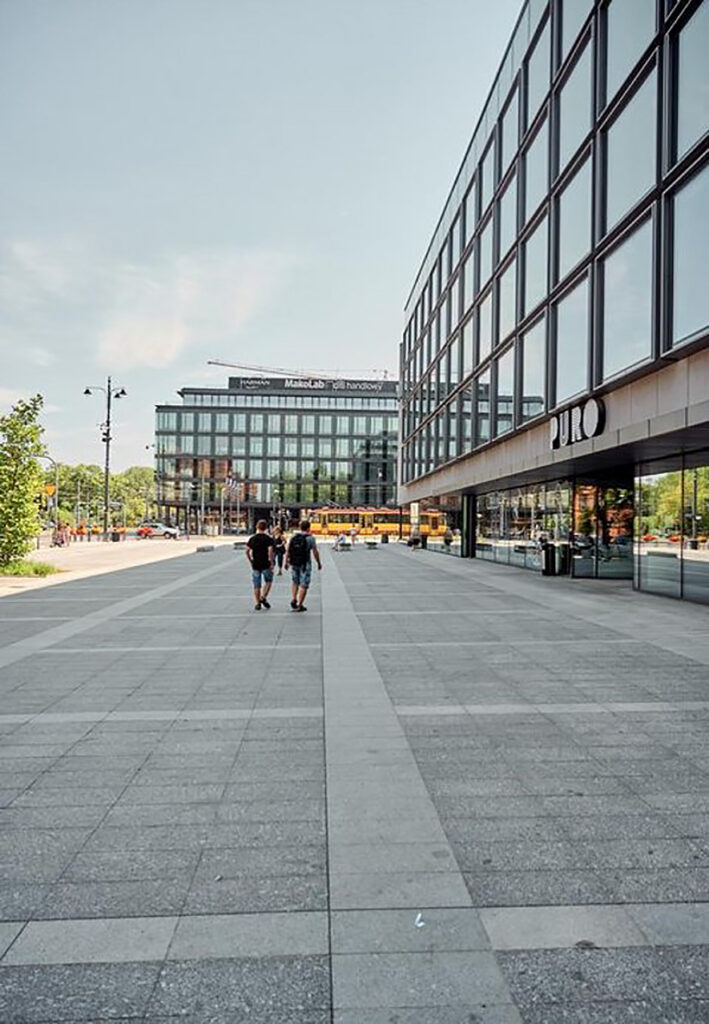We are only as strong as we are united
Climate change is part of our everyday life: the boundaries between seasons are becoming increasingly blurred and with rising concern we witness the effects of global warming at first hand in the form of floods and torrential rains. Scientists also concur that we ourselves are responsible for the predicament we find ourselves in today. Although the remedy may be hard to face, it is very simple: we need to put self-interest to one side and focus on the common good. We need to ask ourselves one simple question – how can we effectively counteract the negative effects of climate change and make the planet safer for future generations? The city of Łódź has one answer – TOGETHER.
1 Łódź means community
The Development Strategy of the City of Łódź 2030+ defines Łódź as a living organism, a place in a state of movement, always transforming and evolving. The city’s historical identity, which is a testimony to 19th-century urban planning concepts, was defined by its inhabitants. Human energy and entrepreneurship have laid the foundation for further development, gradually and consistently nurturing a sense of belonging, connection and pride. This is an enormous potential. Łódź creates – and is created. It boldly meets challenges, inspires cities, communities and – owing to its diversity, a sense of solidarity and cooperation – is unique place where ideas can emerge and develop [1].
This concept for Łódź’s development of course refers to all functional aspects of the city, including the environment in which its inhabitants live. The parallels between this concept and the ‘smart city’ are clearly evident. Usually, a ‘smart city’ is understood as an urban area where state-of-the-art technology is used to improve the quality of public services. However, the emphasis on technology is waning and is instead making way for people-oriented solutions. Now the ‘smart city’ is increasingly considered to be a place that nurtures collaboration, puts its residents first and implements solutions that respond to their needs. The emphasis here is firmly on empowering residents to take the necessary action.
|
Łódź – a city in central Poland, in the heart of Europe is the fourth largest in the country population-wise (approx. 660,000 inhabitants) and area-wise. It is a thriving centre of academic, cultural and sports activities. The city is a member of numerous networks, organizations and associations, both national and international, whose goal is to improve the environment in which we live. The Mayor of Łódź serves as National Ambassador for the Covenant of Mayors and is European Climate Pact Ambassador. |
One aspect of a smart city is its resilience, including resilience to climate change. This is an indicator that the city is one organism, a system of connected vessels in which residents, authorities and entrepreneurs must cooperate to find the best possible solutions for all inhabitants. Only on this basis can development of an urban centre be sustainable.
A general consensus on the goals to be pursued is also a key element of the 2030 Agenda [2]. This is clearly set out and summarized in Goal 17 – Partnerships for achieving the goals: Strengthen the means of implementation and revitalize the global partnership for sustainable development. The key to sustainable development is shared responsibility, broad partnerships and cooperation between citizens, the worlds of business and science, governments and non-governmental organizations. Only such action will bring tangible benefits.
2 Łódź means people
As mentioned above, the development of social capital is one of the key conditions for shaping a friendly, open and attractive city. The Łódź community and its commitment to this vision proves the point. The participation of residents in the co-creation of Łódź at various levels means building relationships, taking responsibility for the environment and ultimately also celebrating the results achieved, which provides additional motivation and is a driving force for further action. The city has developed solutions over the years in the form of subsidies to support pro-environmental activities and encourage the inhabitants of Łódź to create a better environment – for themselves and for the climate (Fig. 1). Thanks to annual funding by the city, residents have been able to install rainwater tanks, create bioretention and irrigation systems using collected rainwater (“Let’s collect rainwater”); plant trees, shrubs, perennials and establish flower meadows (“Let’s make it green”); replace non-ecological heating sources for the sake of cleaner air and create neighbourhood community gardens. The programs were launched to encourage residents to take action to reduce the negative effects of climate change. By greening their own backyards, getting rid of old coal stoves or installing rainwater collection devices, all recipients can play their part in improving the condition of the surroundings.
While empowering and enabling residents is one important way to spread positive change, international cooperation is also essential, which is why Łódź is among the 112 cities selected to participate in the EU mission for climate neutrality solutions (Climate-Neutral and Smart Cities Mission). Additionally, Polish cities that have signed up to the mission (Łódź, Kraków, Warszawa, Wrocław, Rzeszów) also became part of the NEEST (NetZero Emission and Environmentally Sustainable Territories) project consortium, which aims to develop a selected city district as a model of ecological transformation. Consequently, for Łódź it marks the transformation of a quarter in the Radiostacja estate. This model will be adapted to the actual situation and consistently implemented. The aim is to replicate the results of this project in all other cities in Poland and in regions with similar climatic conditions.
3 Łódź means education
Climate change leads to the problem of resource scarcity and disproportionate access to them on a global scale. Developed countries are characterized by excessive consumerism and all the others endure poverty. The key to a better future is to bring about a mindset shift and to increase the value and appreciation for what we already have – this is the goal of the Łódź Schools for Climate project (Fig. 2). At its heart are educational experiments for students and teachers – and consequently also their families. These experiments were thought out during training sessions with teachers, under the supervision of a psychologist. When faced with challenges, young people respect the resources they use every day. They become aware of the importance of saving water, electricity, food, using ecological forms of transport and the importance of spending more time outdoors.
The educational part, which involves training teachers, workshops for preparing the experiment and analysing the outcome, is complemented by an equally important investment part – namely green school yards, created jointly by the teaching staff and students in order to gain further practical insights and knowledge.
Transforming spaces in schools that were previously concreted is the best way to teach and learn about sustainable development. Planting native species, including melliferous ones and creating bird-friendly spaces demonstrates the importance of biodiversity and dedicated rainwater-collection solutions show how to preserve natural resources. Creating small community gardens is a good way to encourage young people to become proactive for the environment. What’s more, when people work together to create space, this emphasizes the importance of sharing responsibility for the environment. That is why business partners (ECHO Investment, Dell Technologies, PWC) participated in the investment part of city project.
The initial (pilot) phase of the project ended in June 2023, six city schools took part: three primary schools and three secondary schools. The next phase started in November 2023 and twelve schools were participating. The idea is to bring the project to all city schools and develop a model that other cities can also use.
The idea of the ŁSFC project is disseminated through the #EKOTOMY campaign on social media. Anyone could get involved by creating a post explaining their eco-friendly idea, however small and publish it with #ekotomy. Each time the # symbol was used, one zloty was donated to the Wild Animal Rehabilitation Center in Łódź. In the era of social media, this type of education is particularly important and has the potential to reach a wide audience. Involving the authorities and business representatives in the campaign also enhances the educational effect.
The next proposal for practical education is workshops for residents, focused on the importance of bees which are fast becoming extinct worldwide. Beekeeping workshops (among others) are held in cooperation with the Łódź start-up organisation Intelligent Hives, which has developed a special system for monitoring these insects. Over 70 % of the world’s food production depends on bees and without them many valuable plant species will simply disappear. All age groups learned about this fact and other benefits of bees – from children to adults. More than 1000 Łódź residents attended three courses between 2021 and 2023 in which they learned about the importance of these insects. The initiative was showcased at the Smart City Expo Poland 2023 and won an award in the environmental protection category.
4 Łódź means partnership
Together for the environment – this is the motto of the Łódź pro-ecological campaign ECOpact, which is aimed at entrepreneurs. This is an invitation to business to declare their commitment by participating in climate initiatives and support the city’s efforts towards a greener environment.
One of the main problems of our consumerist society is the overproduction of plastic. The habit of buying water in plastic bottles results in the accumulation of waste that is difficult to process. And bottled water must be transported, which generates more pollution. Łódź decided to tackle this problem in cooperation with SEGRO Poland by installing drinking water dispensers in participating schools. The campaign aims to educate children and young people about the consequences of buying bottled water for the environment and encourages them to think more ecologically and drink the high-quality tap water in Łódź instead. Action with SEGRO is a very successful example of consistent cooperation: in 2023 the programme ran for the third time and over 40 schools now have dispensers.
The rollout of the project also led to the first European citizens’ initiative– Right2Water – which was enacted in law. One of the stipulations of this document is that European Union member states will have to provide free access to drinking water in public buildings and consequently, that tap water should be suitable for direct consumption and its use should be encouraged.
A common problem in modern cities is the plethora of concrete surfaces in public spaces. Łódź is focussing on this particular challenge by introducing greenery in the historic city centre to counteract climate change, eliminate the urban heat island phenomenon and increase water retention, while improving the quality of life of residents. Hard surfaces in city squares will be partially replaced to achieve this goal, and business is eager to get involved.
WOŚP Square is an example of a cooperation model involving six participants: Puro Hotels, Commerzbank, MakoLab, Orange, Warimpex, PWC (Fig. 3). The idea of the project was to make the space as green as possible without compromising functionality. Concrete slabs were replaced by green islands enriched with small architectural elements to encourage residents to use the square. Łódź received an award for transforming this part of the city in 2023 when the fourth annual City with Climate competition was held.
Anstadta Square is an example of a very successful collaboration with Tate&Lyle Global Shared Services. This is the biggest donation ever to be made for a joint initiative in the public and private sector aimed at increasing green areas in Łódź. Thanks to the revalorization, the square was enriched with flowerbeds containing many plant species, benches for residents and a gazebo planted with vines, which resembles a tram. The installation recalls the history of the square – in 1898, the first tram in Łódź ran along this avenue. By involving local residents, the project provided valuable insights into the benefits of greenery in the urban landscape.
Reymonta Square, which is located in a dense urban area, was revalorized in cooperation with Transition Technologies and Emerson. Trees, shrubs and perennials were planted in the square, using varieties of native species, mixtures of ornamental grasses and melliferous plants. The resulting green area attracts birds and insects. The emphasis on the recreational function of the square will be complemented by an educational element: quotations related to the cycle of nature from the works of Nobel prize winner Władysław Stanisław Reymont.
However, completed investments are not everything. Changes to two more large city spaces that are currently paved with concrete are already underway – Dąbrowskiego Square and a fragment of the W-Z route, near the Centrum Stop. The main conclusion from consultations with residents was that greenery should be introduced in that places.
5 Why Harry Potter?
The subtitle of this article is a quote from one of the parts of the Harry Potter story. These words are not chosen randomly. By referring to the universal values of mutual cooperation and friendship, they also clearly indicate the path to achieving goals and overcoming adversity – in whatever form.
To navigate the problems and challenges of the modern world, concerted action is essential. Łódź knows and understands that social capital is the key to building a resilient attractive city, which is why it places special emphasis on the implementation of the 17th sustainable development goal of the 2030 Agenda. While working towards it, the city does not forget about the interdependence of goals: it is impossible to fight climate change (Goal 13) without sustainable consumption (Goal 12), saving water resources (Goal 6) or investing in renewable energy (Goal 7). The role of education in building a friendly environment is therefore indispensable. Learning about the impact of human activities on the environment empowers residents to actively work towards a brighter tomorrow for the benefit of future generations.
References
- City Council of Łódź (2021) Development Strategy of the City of Łódź 2030+. Annex to resolution No. L/1535/21 of the City Council of Łódź of November 17, 2021.
- UN (2015) Transforming Our World: The 2030 Agenda for Sustainable Development. Resolution 70/1 adopted by the General Assembly United Nations on September 25, 2015.
Authors
Anna Wierzbicka, ann.wierzbicka@uml.lodz.pl
Magdalena Martin-Walczak, m.martin@uml.lodz.pl
City of Łódź, Environmental Management Division
www.lodz.pl/ekoportal






